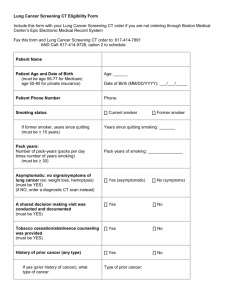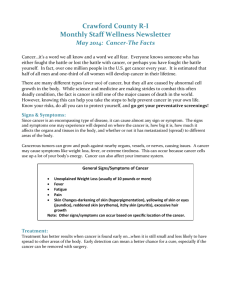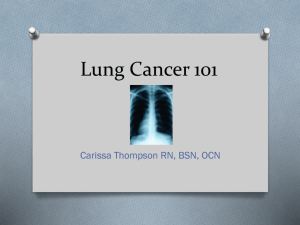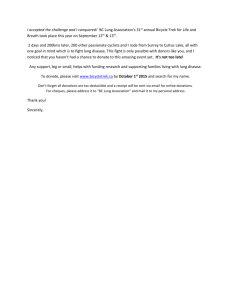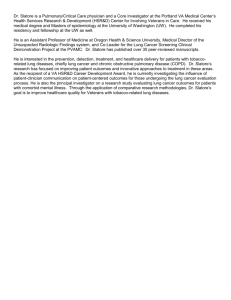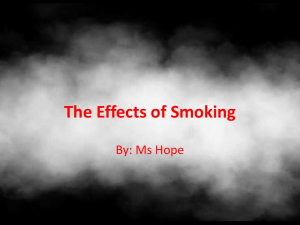Identify and describe the main features of epidemiology using lung
advertisement
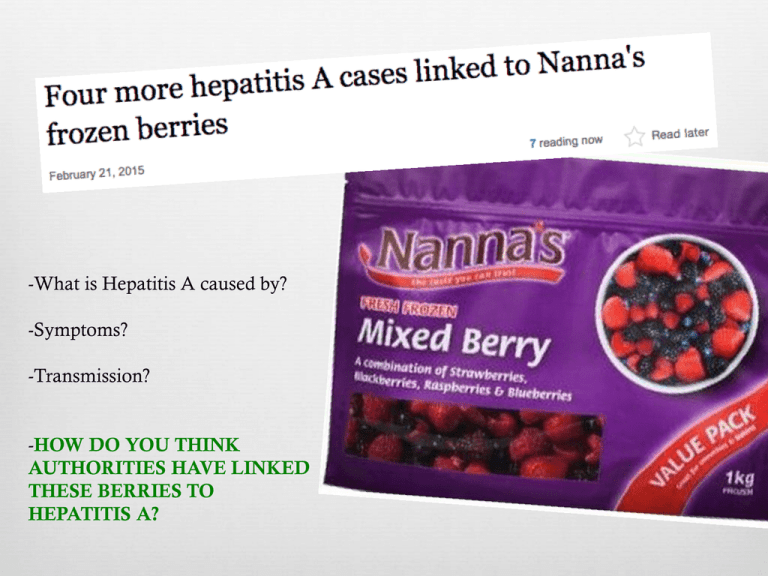
-What is Hepatitis A caused by? -Symptoms? -Transmission? -HOW DO YOU THINK AUTHORITIES HAVE LINKED THESE BERRIES TO HEPATITIS A? Epidemiology Derived from the word epidemic. -’ology’ means ‘the study of ’. Basically, it is the study of epidemics (includes infectious and noninfectious disease though). More specifically, it is the study of the relationship between incidence and risk factors for diseases in populations. All about ‘cause and effect’ The data can be used to minimise the causes and improve health of a population. Lung cancer and smoking: the history Tabacco smoke contains carcinogens. An uncontrolled growth of tumours in the lungs. Growing tumours destroys lung tissue and breathing becomes more difficult. Lung cancer was rare, until mass production of cigarettes started and the companies gave them away for free to soldiers. By 1970s lung cancer had gone from rare condition to number 1 cause of death! Once the link between smoking and lung cancer became more obvious smoking rates decreased lung cancer cases decreased. Further information Types of epidemiology studies Observational: outcomes of risk factors examined. Descriptive Experimental: you have control over risk factors. Analytical Randomised Controlled Trial Descriptive Analytical Collection of data from those affected. Analyse data using a comparison group. -inherent characteristics (e.g. sex, age) To determine risk factors and establish link between cause and effect. -activities (e.g. occupation, drugs, alcohol, leisure) -conditions (e.g. socioeconomic, location) -E.g. Nanna’s mixed berries? smoking and lung cancer. To establish cause and effect for smoking The risk of death from lung cancer is 10 x that for a smoker than a non-smoker. Some characteristics to identify cause 1. High relative risk 2. Consistency Different researchers using different populations have come up with the same results. 3. A graded response to a graded dose 1. Large sample size 2. Control of variables (e.g. age, race, gender) 3. Data that is collected (e.g. lifestyle, environment, morbidity and mortality rate) 4. Data analysis (e.g. compare for common data with and without disease and in people with disease) Smoking must precede lung cancer to be caused by it. 5. Long time period The rate of smoking has decreased and is reflected in a decrease in lung caner over time. 6. Peer reviewed. Death rate increased with the number of cigarettes smoked a day. 4. A time relationship 5. A possible mechanism Chemicals in smoke which are known to be carcinogens- mechanism for mutations in DNA. HSC BIOLOGY EXAM Practise with some of these HSC questions. 2012. Short answer Q 26. 5 marks (hard) 2011. Short answer Q 27. 4 marks (ok) 2007. Short answer Q 25. 3 marks (ok) 2006. Short answer Q 27. 5 marks (hard) From 2007 (ok) Epidemiology studies indicate that there is a relationship between smoking and the incidence of lung cancer. What information would have been gathered to establish this relationship? (3 marks) Marking notes In better responses candidates identified characteristics of a sound epidemiology study and linked this to the need to establish a relationship between smoking and lung cancer.

